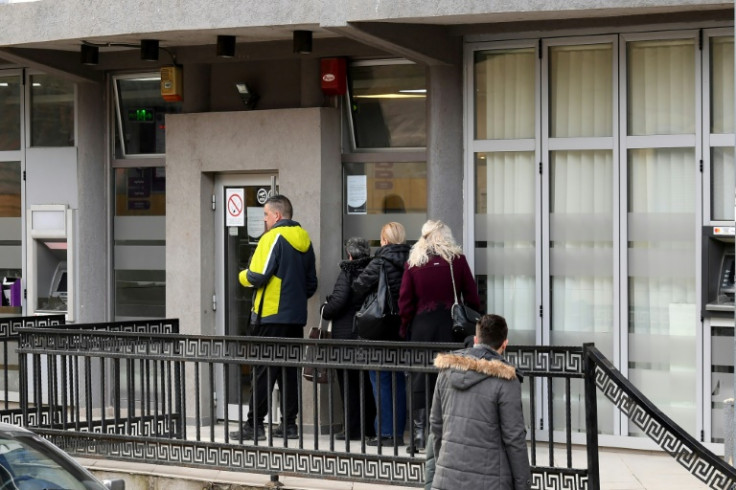
Kosovo said Wednesday that it will not immediately enforce a ban on the use of the Serbian dinar there after an outcry from Western governments.
The ban -- due to take effect Thursday -- sparked fears of a firestorm of anger amid already tense relations with Kosovo's ethnic Serb minority.
The roughly 120,000-strong Serb community has clung to the dinar since a brutal late-1990s war between Serbia and ethnic Albanian insurgents saw Serbian troops and government personnel withdraw from Kosovo.
Just hours before the ban was to come into force, Kosovo's deputy prime minister Besnik Bislimi said the government would hold off on an immediate crackdown on the dinar.
"We will not implement punitive measures immediately, however we will invest time in informing Serb citizens" about the ban, he told a press conference.
"The government of the Republic of Kosovo is committed to eventual transitional periods so that citizens can adapt as quickly as possible, as easily as possible and with minimum damage done," Bislimi added.
But the deputy premier insisted that "the euro remains the only official currency" in Kosovo.
Bislimi also called for the establishment of a "line of communication" between Kosovo and Serbia's central banks.
The announcement followed a morning of mixed signals from the Kosovo government, with Bashkim Nurboja -- chairman of the board of the Central Bank of Kosovo -- indicating that a possible postponement of the ban was in the works.
As confusion spread, several banks in Serb communities across northern Kosovo began shuttering their operations.
Serbia has never acknowledged Kosovo's 2008 declaration of independence, with the two sides locked in bitter disagreements over intricate bureaucratic matters in the former breakaway province, such as a recent spat over licence plates.
Many Serbs in Kosovo work for Serbian institutions where their salaries, pensions and other financial transactions rely on the dinar, rather than the euro which is Kosovo's official currency.
Kosovo adopted the euro as its currency in 2002, despite not being a member of the eurozone nor the European Union.
Western governments have lambasted the dinar ban as inflammatory, warning the regulation would likely upset local Serbs.
Over the weekend, a joint statement published by the US embassy in Pristina, along with the Quint countries, called for "the suspension of the enforcement of the regulation".
The so-called Quint -- France, Germany, Italy, Britain and the United States -- comprises five NATO members that focus on the Western Balkans.
Serbia's President Aleksandar Vucic was to meet with ambassadors from the five countries in Belgrade on Wednesday afternoon.
The dinar ban comes after a turbulent year in Kosovo that saw an armed standoff between Serb gunmen and police at a monastery near the Serbian border in September, where at least four people were killed.
The bloodshed followed rioting earlier in the year after the government installed ethnic Albania mayors in Serb northern areas after elections were boycotted.







